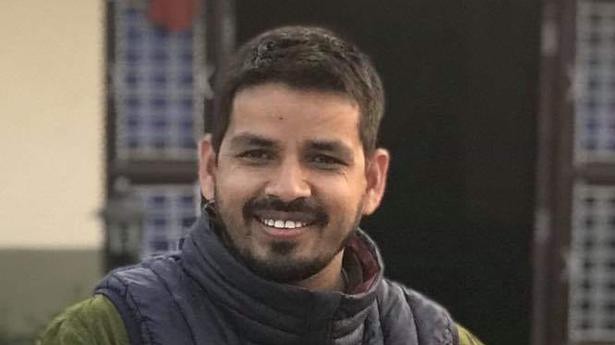
Two Rajasthan MLAs who swapped BSP for Cong appointed heads of State bodies
The Hindu
Discontent was brewing among the six MLAs elected in the 2018 Assembly poll on BSP ticket, who merged with the ruling Congress in 2019.
The Congress government in Rajasthan has appointed two Bahujan Samaj Party-turned-Congress MLAs as heads of State bodies in a move perceived as an attempt to placate them ahead of the 2023 Assembly election. Discontent was brewing among the six MLAs elected in the 2018 Assembly poll on BSP ticket, who merged with the ruling Congress in 2019.
While Nagar (Bharatpur) MLA Wajib Ali was appointed chairperson of the State Food Commission, Tijara (Alwar) MLA Sandeep Yadav was appointed chairperson of the Bhiwadi Urban Infrastructure Development Board. The orders, issued late on Monday, stated that the new chairpersons would not get salary, allowances or pecuniary benefits.
The turncoat MLAs had been complaining for several months that the promises made to them were not fulfilled. The legislators had supported Chief Minister Ashok Gehlot during the political crisis in 2020 caused by the rebellion of then Deputy Chief Minister Sachin Pilot and voted for the Congress candidates in the Rajya Sabha elections held in June this year.
One of the six MLAs, Rajendra Gudha, was appointed a Minister of State during the Cabinet reshuffle in November 2021 and three others were accommodated in different Boards and Commissions. However, Mr. Ali and Mr. Yadav were not given any position either in the government or in any of the statutory bodies.
Mr. Ali had recently expressed his anguish against the Ministers and bureaucrats, while complaining that they were not accessible to the MLAs and the works of his constituency were not being done. Mr. Yadav shot off a letter to the Chief Minister, accusing the Congress of giving “step-motherly treatment” to the BSP-turned-Congress legislators.
Among the six MLAs, Deepchand Kheria was earlier made deputy chairperson of the Farmers’ Commission, Joginder Singh Awana chairperson of Devnarayan Board and Lakhan Singh Meena chairperson of Dang Development Board.
Minister of State for Soldiers’ Welfare Mr. Gudha, who is the most vocal among the BSP turncoats, had said that they did not fit in the Congress culture and the attitude of the Cabinet Ministers towards them was “unfair”, even though he had convinced his fellow legislators to join the Congress on behalf of Mr. Gehlot.

“Writing, in general, is a very solitary process,” says Yauvanika Chopra, Associate Director at The New India Foundation (NIF), which, earlier this year, announced the 12th edition of its NIF Book Fellowships for research and scholarship about Indian history after Independence. While authors, in general, are built for it, it can still get very lonely, says Chopra, pointing out that the fellowship’s community support is as valuable as the monetary benefits it offers. “There is a solid community of NIF fellows, trustees, language experts, jury members, all of whom are incredibly competent,” she says. “They really help make authors feel supported from manuscript to publication, so you never feel like you’re struggling through isolation.”

Several principals of government and private schools in Delhi on Tuesday said the Directorate of Education (DoE) circular from a day earlier, directing schools to conduct classes in ‘hybrid’ mode, had caused confusion regarding day-to-day operations as they did not know how many students would return to school from Wednesday and how would teachers instruct in two modes — online and in person — at once. The DoE circular on Monday had also stated that the option to “exercise online mode of education, wherever available, shall vest with the students and their guardians”. Several schoolteachers also expressed confusion regarding the DoE order. A government schoolteacher said he was unsure of how to cope with the resumption of physical classes, given that the order directing government offices to ensure that 50% of the employees work from home is still in place. On Monday, the Commission for Air Quality Management in the National Capital Region and Adjoining Areas (CAQM) had, on the orders of the Supreme Court, directed schools in Delhi-NCR to shift classes to the hybrid mode, following which the DoE had issued the circular. The court had urged the Centre’s pollution watchdog to consider restarting physical classes due to many students missing out on the mid-day meals and lacking the necessary means to attend classes online. The CAQM had, on November 20, asked schools in Delhi-NCR to shift to the online mode of teaching.









